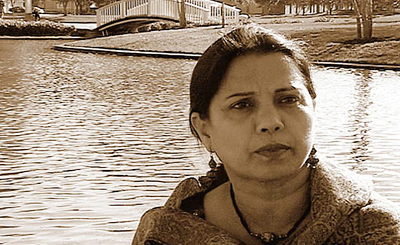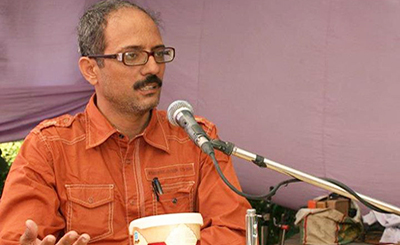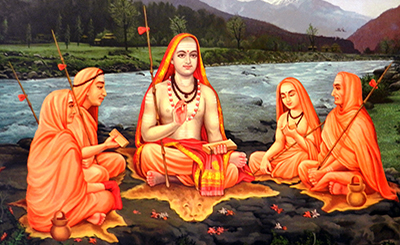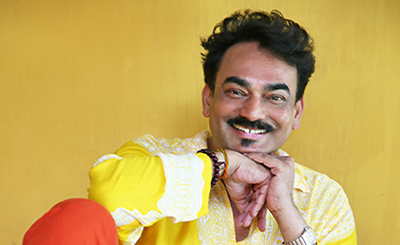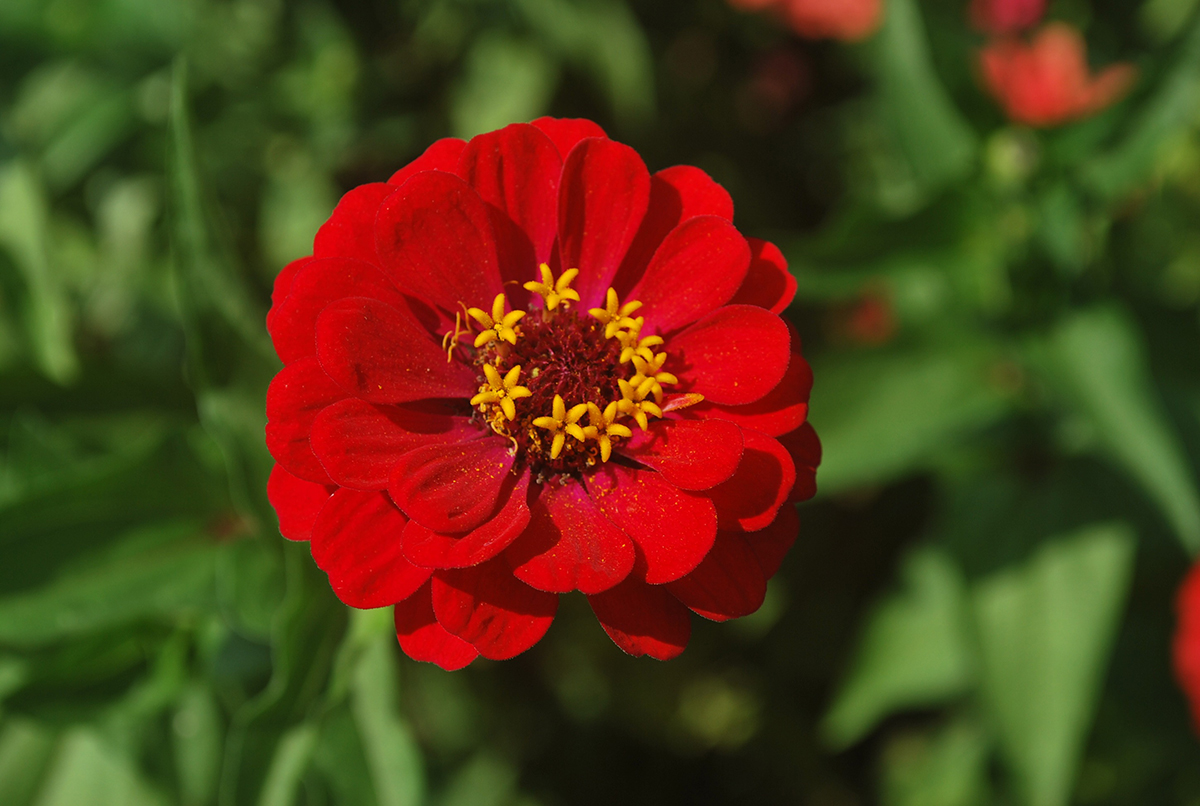
Dear Editor,
Congratulations! This new venture is a brilliant idea. The readers of The Grain — including yours truly of course — thank you for it. Inviting us to write in, taking an interest in our lives, offering to send us reading lists that match our individual tastes and needs…such generosity is not of this world. Everybody is in a rush — eyes fixed on the future, untethered from the past, oblivious to the present. Standing still is a forgotten art. Giving a person your undivided attention, devoting your time to another — rare as rain in summer.
A text in place of a conversation.
An email instead of a phone call.
A video conference instead of a face-to-face meeting.
Contact without making real contact.
Hard to tell the difference between man and machine. Hard to find a beating heart.
This is why I banned cellphones from my classes. You understand I had to do something to slow down humanity’s descent into madness. Students had to put away their phones when they signed up for my lectures. I saw their panicked looks, their fidgety eagerness to be reunited with their phones. Some of them staged dramatic outbursts. Some cursed me under their breath. I stood my ground and refused to revoke the rule. An hour of separation became an endurance test. Happy to report all of them came out of it alive!
When old favourites visit me now — a small, but loyal band — I see them clinging to their phones like drowning sailors to ropes. I resist the temptation to lecture them. Now that I am retired, it is not my place to lay down rules. Obedience in a classroom is rooted in fear — fear of your teacher’s disapproval, fear of bad grades, an avalanche of tangible consequences headed your way. All that is history now.
“They gave up their phones for you,” Seema would say. “Out of love for Professor Sen. Out of respect for you.” My wife was a romantic. Always giving people the benefit of the doubt. Always seeing the best in them — even when there was little reason to do so. Once when we were on holiday, she lost her wallet at an antiques market. The place was teeming with unsavoury characters. The antique dealers looked shifty, which made me wonder if they sneaked around the country, stealing statues and rugs and ornate cabinets from ruined temples and palaces everywhere. It wasn’t just the dealers. Even the men who stood around doing nothing — neither buying nor browsing — had a shifty look. The market was a rogues’ gallery of sorts. But Seema was oblivious to it. She believed her carelessness, and her carelessness alone, was responsible for the missing wallet.
Ignoring her protests, I insisted we head to the nearest police station to file a complaint. We walked down the street, side by side, maintaining a pointed silence. At the station, we were greeted by a droopy-eyed constable, the only man on duty at the time. With him manning the fort, the pickpockets in town had nothing to fear. Seema reported the theft to him. He took notes like a sleepwalker. No questions asked. Not a flicker of interest on his part.
The wallet was gone and he had no intention of hunting the thief down. Registering the complaint was too much effort for him. It was obvious he wanted to be rid of us so he could go back to sleep. What he needed was a punch on his sagging jaw. A blow to jolt him awake.
Seema took my arm before I gave into the impulse and steered me towards the exit. She didn’t let go till we were a block away from the station and the comatose guardian of the law. The streets had emptied out. There was no one to be seen except a lone cyclist. The quiet deepened the sea’s hum. The song, soothing and familiar, filled the dusky air. Seema pointed at the sky. The sunset had set off an explosion of colour up there: red, pink, orange, russet, hues whose names were new to me, hues that I had only seen in my dreams. I forgot the lost wallet and the ridiculous cop. A weight lifted. I stared at the sky like a wonderstruck kid.
Seema was always pointing out the important things to me, the ones that matter in the end. What is worth seeing, what needs to be ignored — the distinction was clear to her. Anger or anxiety never clouded her judgment. I am a lucky man to have married her. Ours was an arranged marriage. The two families, hers and mine, got together and decided it was a suitable match. Caste, social standing, educational qualifications — check, check, check. We shared the same modest middle-class background. We were both teachers. What more did we need to build a future together?
The two of us were given a chance to meet once before the wedding. On a blazing summer morning, I sat in Seema’s living room, sweaty and tongue-tied, surrounded by a throng of relatives who had gathered around to chaperone us. They gave me all sorts of useless advice. Someone cracked risqué jokes that fell flat. My cousin sang a love song from a popular film in a syrupy voice. All of it grated on my frazzled nerves. When Seema walked into the room, she was perfectly poised. Unlike me, she radiated an air of calm, a confidence that was endearing and impressive. She went around the room, serving us tea; sweet and milky, seasoned with cardamom. I instantly liked the tea and the maker.
To be frank, even if I had reservations the wedding would have gone ahead as planned. An astrologer had picked an auspicious date for the ceremony. Caterers had been hired, florists lined up, invites to the ceremony were already at the printers’. Our meeting was only a formality. The wedding juggernaut was unstoppable. The bride and the groom had only one choice: get on board. That was the way it went.
I’ve lived a whole life this way: fitting into stories others have scripted, following instructions, accepting the roles handed out to me. My father was a teacher and he expected me to walk the same road. So I did. My mother approved of Seema. So I married her. Not that I resent them for dreaming my dreams. Not that I wasted my time wallowing in regret. But I confess there have been moments — wistful flashes, unquiet ones — when I’ve wondered, secretly, what shape my life would have taken had I rebelled.
Do you think it was the same for Seema? In the thirty years we shared, how often did she long for a different life? I never heard her complain. Never saw her turn into a bitter person. Stoic, calm, gentle, and brave — even when she had to spend the last weeks of her life at the hospital, hooked to a machine that monitored her erratic heartbeat, she stayed the same. If there were regrets, she kept them to herself. If there was bitterness, she hid it well. The heart is a fortress; we hoard what we hoard, we take our secrets with us to the grave.
Even if Seema had regrets, even if shadows lurked behind her smile, I like to think they were fleeting. We had a good marriage; the bond between us like a river running deep, nourishing, generous; an intimacy that never sapped our individuality. We danced, cheek to cheek, but we treaded carefully. A delicate balancing act, a dance we got better at with each passing year. Time taught us how to live better, love better.
Being a childless couple, we perfected the art of fending off questions — from family members, friends, nosy acquaintances. In the early years of our marriage, we were pitied and censured, put on trial for failing to bring a child into the world. People love the revolting game of assigning blame. There were many who enjoyed blaming Seema and me. Whispered comments. Innuendo. Cloying sympathy. Barefaced lies. Our world of two came under attack constantly. I let it get under my skin. Angry and hurt, I tore into the gossips, picked ugly fights, hit out at everybody like a man gone mad. The battles left me exhausted, but the victories I won were short lived. Idle talk flared up again and again. Tongues wagged. Waves of speculation came and went.
Seema showed me, by example, to tune out the deafening noise. Slowly, I stopped reacting to the barrage of questions and thoughtless remarks. I learnt to pick my battles wisely. Those who took pleasure in baiting me backed away. I stopped living in a constant state of agitation. Peace returned to our home to Seema’s relief.
Life without her is a strange, shadowy thing — I find myself adrift, a kite cut loose. Her absence is an ache that can’t be dulled. Sometimes I think this is a bad dream from which I will wake and find her, alive and well, at my side. I’m always collecting things to share with her — conversations, anecdotes, my observations on the state of the world. I cram them into my head. I hoard them in the nooks of my mind. My pile grows — I cannot understand things fully or feel their true intensity unless I unpack them in front of her.
How do I shore myself up against the ruins? How do I fill the empty hours? Every morning and evening, I work on her garden; tending to the plants, watering, weeding, pruning, mending the hedges at the borders. This patch of land was Seema’s dream, obsession, object of desire. She sweated over it — planning the layout, preparing the soil, potting, seeding, tending to the plants.
I wasn’t much help, I confess. I have no natural instinct for gardening. Don’t get me wrong. Gardens are works of art. I admire their symmetry and grace, their beauty and lush grandeur. I’ve spent many happy hours in them. A walk in a garden makes my heart sing, but growing a garden is not a skill I possess.
I watched in awe as Seema worked her magic: tender saplings shot up, buds burst into bloom, vines launched their upward climb, creepers curled around delicately mounted arches. Roses, a riot of carnations, daisies, zinnias, creamy white jasmine, shocking pink asters. Blaze of colour. Scented air. Dappled light. Her garden grew like a dream, a painting, a song. Perfection took root on the patch of land in front of our home.
Now that she is gone, I water the plants every evening without fail. I add fertilizer to the soil. Sprinkle pesticide, yank weeds out by the roots when they spring up, keep the flower beds moist and clean. Trim and prune. Cut and graft. All the lessons I learnt from Seema by osmosis, I apply diligently to the tasks at hand. Flowers bloom under my watch. Buds like tiny curled fists appear. Leaves gleam, emerald green. My hands grow calluses; my feet are caked in mud. I brave the sun and the rain, summer’s glare and winter’s sting. Neither the weather nor my brittle bones get in the way of my labours.
Every time a flower blooms, my heart swells with pride. Each new shoot, pale and delicate, is a glorious surprise. The neighbours stop by to admire the garden; my friends congratulate me on doing a fine job. You work so hard! You deserve a medal! I brush aside their compliments. Seema is the one they should be praising. She has pulled off a miracle by teaching me, a man without a green thumb, the art of keeping a garden alive.
To work on the soil and rest in the shade, to breathe in the scents and soak in the colours, to walk past the flowers swaying on the stalks — all of it is pure joy. I feel Seema’s presence here. I hear the echoes of her laughter in the wind.
I have the garden to take care of. I have friends who visit me every day. We stick to our old routine — head to the park around the corner at first light, stretch our legs, chat about everything from the weather to our health to the rotten state of politics. We never run out of things to talk about. I am not starved of human contact or conversation. My nieces and nephews, scattered across the country, call me every day. My students come knocking on my door from time to time. I have nothing to complain about, but my days feel incomplete, my mornings drained of light. Seema’s side of the bed is empty when I wake up. When I make my tea, her cup, perched on the kitchen shelf, reminds me of our shared morning ritual. I take my tea out to the garden. I hear the wind brushing past the trees. I watch the sun climb a new rung in the sky. Seema’s voice calls out to me from memory. The sound pierces my heart like a knife.
You ask about my current state of mind. You ask what kind of books I like to read. I’ve been a voracious reader of fiction all my life, but I have lost interest in it of late. Grief has tainted my imagination. Stories slither out of my grasp; plot twists elude me. Because a world without Seema makes no sense, the worlds authors conjure up on the pages don’t hold my interest. My state of mind is hard to describe. I live a strange half life. I’m here, but not here. A creature of flesh and blood, a shadow without a presence. Memories feel more real to me than my everyday reality. They haunt me at night. They stalk me in the bright light of day.
With thanks,
Your loyal reader
More from The Byword
Comments
*Comments will be moderated





